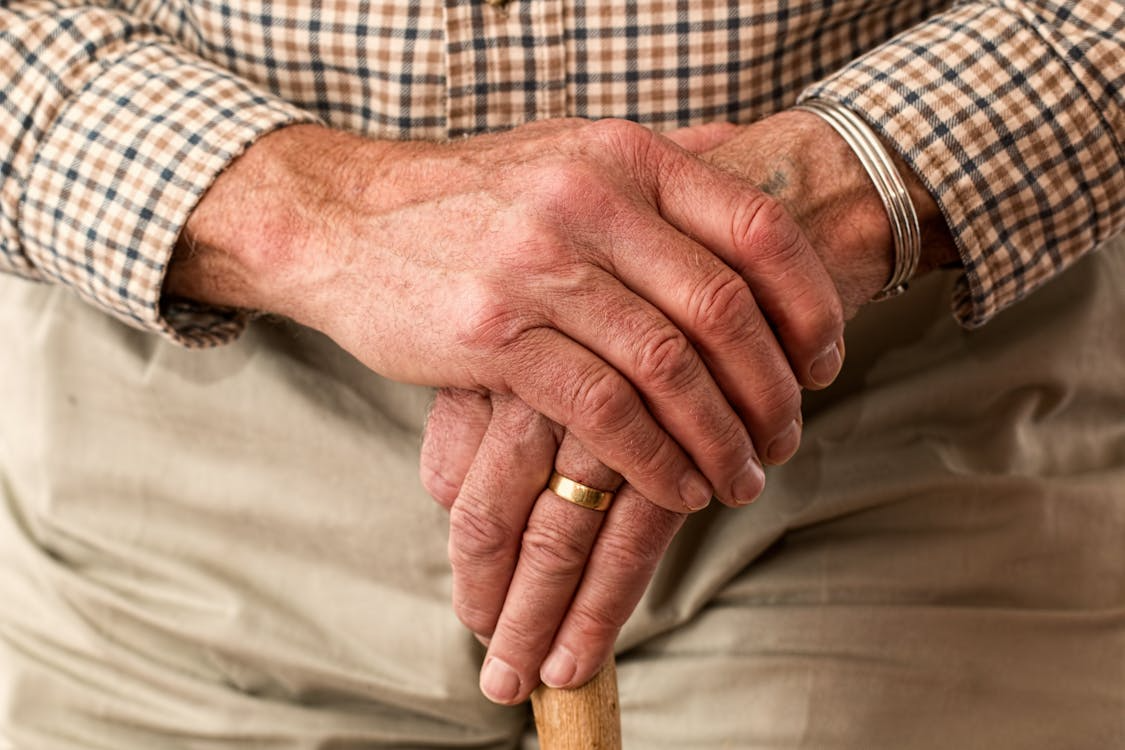
When Doug Taylor applied for aged care support, he found himself walking into a system his wife Eileen would barely recognise.
What had once been a safety net offering comfort and stability had shifted into a new reality of fees, forms, and difficult choices.
For many older Australians, this was not just a change in paperwork—it was the beginning of an uncertain new era.
On 1 November 2025, Australia is set to launch the Support at Home program, replacing the long-standing Home Care Packages system.
This overhaul represented the most dramatic shift in aged care since Medicare was introduced, fundamentally altering how millions of Australians accessed and paid for essential support.
The program arrived with the backing of the Aged Care Act 2024, passed by Parliament in November 2024.
The changes were not minor adjustments—they marked a complete restructuring of how aged care operated, touching every corner of the system.
In this article
What the new system covers
Under this new framework, the government committed to fully funding clinical care such as nursing, physiotherapy, and medical services.
But all non-clinical services—personal care, domestic help, and day-to-day support—would now involve co-payments from older Australians themselves.
That meant basic needs like showering assistance, help with medication, cleaning, cooking, and laundry came with price tags attached.
'A shower is essential hygienic care. To ask people to choose between that and food is really an obscenity.'
The cost of everyday care
The numbers were striking.
Providers set their prices at around $100 per hour for personal care and $95 per hour for domestic assistance.
Depending on their income and assets, Australians were expected to contribute between 5 and 50 per cent for personal care, and 17.5 to 80 per cent for domestic services.
For some, that meant paying $50 per hour for a shower and up to $75 per hour for cooking or cleaning.
Protected vs unprotected Australians
This created a sharp divide between those who were protected and those who were not.
Anyone already receiving a Home Care Package, on the National Priority System (waitlist), or assessed as eligible for a package on or before 12 September 2024 was safeguarded by the ‘No Worse Off Principle’.
They would not pay more than under the old system.
But new applicants—including Doug Taylor—were left to face the full impact of the co-payment model.
With around 130,000 Australians still waiting for home care packages, a large portion of the population was about to cross into this new financial reality.
Who's Protected vs Who Pays More
Protected from increased costs: Current Home Care Package recipients, those on the waitlist, or assessed as eligible on or before 12 September 2024—they will make the same or lower contributions under Support at Home
Subject to new co-payments: Anyone approved after 12 September 2024—including new applicants and those on the waitlist not yet approved—future aged care recipients
The push to apply early
Aged care advocates responded with urgency, urging eligible Australians to apply for support before the cut-off.
For those who waited, the difference could be thousands of dollars each year.
Pricing without limits—for now
For the first eight months of the program, providers continued to set their own prices.
Government-imposed price caps were not scheduled until 1 July 2026.
This decision was made after providers argued that immediate caps threatened their viability, but it left consumers exposed to high costs during the transition period.
How the co-payments work
The co-payment system operated on a sliding scale.
Personal care: showers and medication assistance
- Full pensioners: 5 to 17.5 per cent of provider fees
- Part-pensioners: 17.5 to 35 per cent of provider fees
- Self-funded retirees: 35 to 50 per cent of provider fees
Domestic assistance: cleaning, cooking, and laundry
- Full pensioners: 17.5 to 35 per cent of provider fees
- Part-pensioners: 35 to 65 per cent of provider fees
- Self-funded retirees: 65 to 80 per cent of provider fees
These figures revealed a fundamental shift: the higher an individual’s means, the more they were expected to pay, though even the lowest-income Australians were no longer shielded from fees.
The watchdog’s warning
The strongest criticism came from within the government itself.
Natalie Siegel-Brown, the Inspector-General of Aged Care, warned that the model contradicted the Royal Commission’s recommendations.
'I believe that it will prejudice those with the lowest income in our society—and that has costs to human rights, fairness and equity.'
She cautioned that by funding only clinical care while leaving non-clinical services subject to co-payments, the system risked leaving the most vulnerable with the lowest levels of support.
This ran contrary to the 2021 Royal Commission into Aged Care Quality and Safety, which had recommended a needs-based model.
The Royal Commission argued that support should depend on care requirements, not financial capacity.
What it means for families
For older Australians and their families, the reality of the transition depended on their status.
Current Home Care Recipients remained protected.
Their providers would contact them about new agreements, but their fees would not increase.
Those on waiting lists faced uncertainty.
If they secured approval before 1 November, they retained protections.
If not, they would join the co-payment system.
With average wait times of 9 to 12 months for assessment and up to another year for services, many would not make it through in time.
Future applicants were entirely under the new regime.
The message from advocates was clear—apply as early as possible.
Family members also needed to understand the urgency.
The difference between applying in October and applying in November could be tens of thousands of dollars across a loved one’s care.
Action Steps Before 1 November 2025
- Apply for aged care assessment immediately if eligible
- Contact My Aged Care on 1800 200 422 for guidance
- Understand your current protection if already receiving care
- Review family finances to prepare for potential co-payments
- Seek financial advice about aged care planning
Changes to residential aged care
The reforms stretched beyond home care.
Residential aged care also faced significant changes.
Families paying the Refundable Accommodation Deposit (RAD)—often more than $750,000—had previously received the full amount back when their loved one passed away.
Now, providers could retain 2 per cent of the RAD each year, capped at 10 per cent over five years.
New residents also faced daily means-tested contributions for non-clinical care such as bathing and mobility assistance.
These fees could reach up to $100 per day, with additional ‘hotelling’ charges for meals and accommodation.
Did you know?
Delayed start The Support at Home program had originally been scheduled to begin on 1 July 2025. After feedback from providers and older Australians about insufficient preparation time, it was delayed to 1 November 2025. Even with this delay, many stakeholders argued the sector was not ready for such sweeping reforms.
Political silence vs public anger
Despite the scale of these changes, the government offered little detail about support for those struggling with costs.
Aged Care Minister Sam Rae declined interviews, releasing only a statement that mentioned ‘financial hardship assistance available for those who need it’.
No eligibility rules, application processes, or funding amounts were provided.
Health Minister Mark Butler also declined to comment.
This silence contrasted with the loud voices of aged care advocates.
Beverly Baker of the Older Women’s Network said, ‘We are the generation of protest. When people realise the impact, they’ll be out demanding not more than we need, but what we need—so that we can die with dignity.’
What lies ahead
Looking forward, the Support at Home program’s launch marked only the first stage of reform.
The Commonwealth Home Support Programme would not transition until at least 1 July 2027, leaving multiple systems in place simultaneously.
For providers, the lack of clarity about sustainable price levels created instability.
They were asked to set service costs without guidance, knowing price caps were coming in mid-2026.
Many were expected to err on the side of higher pricing, prioritising viability over affordability.
The staged implementation left major questions unanswered.
Would future price caps guarantee access?
How would financial hardship assistance operate in practice?
What happened to Australians who simply could not afford the fees?
Getting help
For those seeking help, resources included My Aged Care (1800 200 422), fee estimators at myagedcare.gov.au, and financial information officers offering free guidance.
For current recipients, providers would handle the transition.
Assessments would not need to be repeated, but agreements had to be signed.
For new applicants, the only option was to apply online through My Aged Care and plan finances accordingly.
A national turning point
Doug and Eileen Taylor’s story reflected the broader national moment.
Australia was reshaping its aged care system, shifting responsibility from the collective to the individual.
Supporters claimed it was necessary for long-term sustainability.
Critics said it compromised the principle of equal access to essential care.
As Beverly Baker reminded the nation, older Australians were not likely to remain silent.
The months ahead would reveal whether public pressure could reshape the reforms—or whether the new reality of paying for basic support was here to stay.
What This Means For You
From 1 November 2025, the long-standing Home Care Packages system was officially replaced by the new Support at Home program.
While existing recipients before this date were shielded from extra charges, newcomers weren’t as fortunate.
Under the changes, everyday non-clinical support—like showering, cooking, and cleaning—now came with mandatory co-payments.
On top of that, residential aged care introduced additional fees, including rules that allowed part of residents’ refundable accommodation deposits to be lost.
For older Australians, these changes meant a real shift in how care was accessed and paid for.
What was once provided for free now carried a price tag, and for many, this raised serious concerns about affordability, independence, and long-term financial security in retirement.
While the Support at Home program introduced major changes to fees and protections, it was not the only adjustment made in the lead-up to the overhaul.
In fact, the government had already shifted course once before, responding to mounting pressure about long waitlists and urgent need for access to care.
One such move saw a significant number of packages brought forward earlier than planned, showing how policy decisions can rapidly change direction when public concern grows.
Read more: Albanese government to bring forward home care packages in major backdown
Support at Home program | Australian Government Department of Health, Disability and Ageing — The new Support at Home program will replace the Home Care Packages Program and Short-Term Restorative Care Program from 1 November 2025.
https://www.health.gov.au/our-work/support-at-home
Support at Home program | My Aged Care — On 1 November 2025, the Support at Home program will replace Home Care Packages.
https://www.myagedcare.gov.au/support-home-program
About the new rights-based Aged Care Act | Australian Government Department of Health, Disability and Ageing — The Australian Parliament passed the Aged Care Act 2024 as the new law for government-funded aged care in Australia on 25 November 2024.
https://www.health.gov.au/our-work/aged-care-act/about
Support at Home program: Key reforms & changes coming to aged care in 2025 — If you already have a Home Care Package – or are approved for one before Nov 2025 – you are protected under the ‘No Worse Off Principle’.
https://agedcaredecisions.com.au/support-at-home-aged-care-reforms/
Support at Home program: Key reforms & changes coming to aged care in 2025 — If you’re already receiving a Home Care Package or are approved before 12 September 2024, the No Worse Off Principle applies.
https://agedcaredecisions.com.au/support-at-home-aged-care-reforms/
Support at Home pricing changes | My Aged Care — For the first year of the program, providers will continue to set their own prices for services.
https://www.myagedcare.gov.au/news-and-updates/support-home-pricing-changes
Support at Home pricing changes | My Aged Care — From 1 July 2026, the Australian Government will apply price caps.
https://www.myagedcare.gov.au/news-and-updates/support-home-pricing-changes
Aged Care woes continue for older Australians, new Royal Commission report smashes Labor’s reforms | The Australian Greens — Inspector-General Natalie Siegel-Brown warned co-payments run contrary to the Royal Commission’s intent.
https://greens.org.au/news/media-re...stralians-new-royal-commission-report-smashes
Aged Care woes continue for older Australians, new Royal Commission report smashes Labor’s reforms | The Australian Greens — The Inspector-General cautioned that funding is focused on clinical care, while non-clinical care requires significant co-payments.
https://greens.org.au/news/media-re...stralians-new-royal-commission-report-smashes
About the Support at Home program | Australian Government Department of Health, Disability and Ageing — The start of the Support at Home program was delayed from July 2025 to November 2025 after sector feedback.
https://www.health.gov.au/our-work/support-at-home/about
New Aged Care Act to start from 1 November | My Aged Care — The new Aged Care Act 2024 and Support at Home start were deferred to 1 November 2025.
https://www.myagedcare.gov.au/news-and-updates/new-aged-care-act-start-1-november
About the Support at Home program | Australian Government Department of Health, Disability and Ageing — The Commonwealth Home Support Programme will transition to Support at Home no earlier than 1 July 2027.
https://www.health.gov.au/our-work/support-at-home/about
New Support at Home pricing guidance | Australian Government Department of Health, Disability and Ageing — Price caps for services will apply from July 2026.
https://www.health.gov.au/news/new-support-at-home-pricing-guidance
Have you or your loved ones faced challenges under the new Support at Home system—and do you believe older Australians should be charged for basic care?







